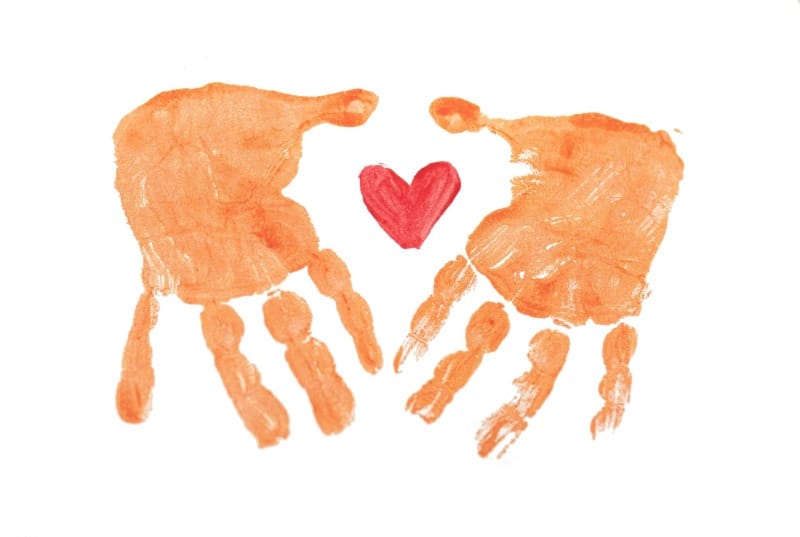It is easy to get caught up in our own lives and forget about the power of helping others. But did you know that lending a hand to those in need can actually benefit your own health? Recent scientific research has uncovered some fascinating connections between acts of kindness and personal well-being. In this article, we'll explore three science-backed health benefits of helping others that might just inspire you to become more generous with your time and energy.
Key Takeaways:
- Helping others can lower stress levels and potentially increase longevity.
- Acts of kindness boost mood and may help alleviate symptoms of depression.
- Volunteering and charitable activities can improve physical health and cognitive function.
Now, let's dive deeper into these remarkable benefits and discover how helping others can transform not only the lives of those you assist but also your own health and happiness.
The Stress-Busting Power of Generosity
We all know that stress can take a toll on our health, but here's some good news: helping others might be just the antidote we need. Research has shown that engaging in acts of kindness and generosity can actually lower our stress levels and potentially lead to a longer life[2].
How Helping Reduces Stress
When we help others, our bodies release oxytocin, often called the "love hormone." This powerful chemical can counteract the effects of cortisol, the stress hormone that can wreak havoc on our bodies when present in high levels. By reducing stress, we're not only feeling better in the moment but also potentially protecting ourselves from the long-term health risks associated with chronic stress, such as heart disease and high blood pressure[8].
The Longevity Link
Interestingly, studies have found a connection between helping behavior and increased longevity. One study published in the American Journal of Public Health discovered that people who volunteered for altruistic reasons had a lower risk of mortality compared to non-volunteers[2]. This suggests that the act of helping others might actually help us live longer, healthier lives.
Practical Ways to Help and Reduce Stress
- Volunteer at a local charity or community organization
- Offer to help a neighbor with yard work or errands
- Donate to a cause you care about
- Participate in a community clean-up event
Remember, even small acts of kindness can make a big difference, both for others and for your own stress levels.
Boosting Mood and Fighting Depression
Another remarkable benefit of helping others is its positive impact on our mood and mental health. Acts of kindness have been shown to boost happiness and may even help alleviate symptoms of depression[4].
The Science of Happiness
When we help others, our brains release endorphins, which are natural mood-boosters. This "helper's high" can lead to increased feelings of happiness and satisfaction. Moreover, the social connections we form through helping others can combat feelings of loneliness and isolation, which are often linked to depression[7].
Combating Depression Through Service
Research has indicated that volunteering and engaging in prosocial behavior can be effective in reducing symptoms of depression. A study published in the Journal of Happiness Studies found that people who volunteered regularly reported higher levels of well-being and lower levels of depression compared to those who didn't volunteer[4].
Ways to Boost Your Mood Through Helping
- Join a mentoring program to support young people in your community
- Volunteer at a local animal shelter
- Participate in a charity walk or run
- Offer emotional support to a friend in need
By incorporating these activities into your routine, you might find yourself experiencing more joy and positivity in your daily life.
Improving Physical Health and Cognitive Function
It's not just our mental health that benefits from helping others – our physical health and cognitive abilities can also get a boost. Engaging in volunteer work and charitable activities has been linked to improved physical health outcomes and better cognitive function, especially in older adults[6].
Physical Health Benefits
Studies have shown that people who volunteer regularly tend to have lower blood pressure and better overall physical health. This could be due to the increased physical activity often associated with volunteer work, as well as the stress-reducing effects we discussed earlier[8].
Cognitive Function and Volunteering
For older adults, volunteering can be particularly beneficial for maintaining cognitive health. Research has found that older individuals who engage in volunteer activities show improved cognitive function and a lower risk of dementia. The social interaction, mental stimulation, and sense of purpose provided by volunteering may all contribute to these cognitive benefits[6].
Ways to Get Physically Active While Helping Others
- Participate in a community garden project
- Volunteer for a local sports team or youth program
- Help with home repairs for elderly neighbors
- Join a charity hiking or biking event
By combining physical activity with helping others, you can double the health benefits and make a positive impact on your community.
The Ripple Effect of Kindness
One of the most beautiful aspects of helping others is the ripple effect it creates. When we engage in acts of kindness, we not only improve our own health and well-being but also inspire others to do the same. This creates a positive cycle of generosity that can transform entire communities[7].
Building Stronger Communities
As more people engage in helping behaviors, communities become stronger and more resilient. This can lead to improved social support networks, which are crucial for both individual and community well-being[5].
Inspiring the Next Generation
By modeling generous behavior, we can inspire younger generations to embrace the value of helping others. This can create a lasting legacy of kindness and compassion that extends far beyond our individual actions[3].
Conclusion: Small Acts, Big Impact
The science is clear: helping others is not just good for the soul, it's good for our health too. From reducing stress and boosting mood to improving physical health and cognitive function, the benefits of lending a helping hand are numerous and far-reaching.
As we've explored in this article, you don't need to make grand gestures to reap these health benefits. Small, consistent acts of kindness can have a profound impact on both your well-being and the lives of those around you. Whether it's volunteering at a local charity, helping a neighbor, or simply offering a listening ear to a friend in need, every act of kindness counts.
So, the next time you're feeling stressed, down, or just in need of a health boost, consider reaching out to help someone else. You might be surprised at how much it helps you too. After all, in the words of the Dalai Lama, "If you want others to be happy, practice compassion. If you want to be happy, practice compassion."
Remember, a healthier, happier you is just one act of kindness away. Why not start today?
Citations:
[1] https://www.ncbi.nlm.nih.gov/pmc/articles/PMC3780662/
[3] https://www.ncbi.nlm.nih.gov/pmc/articles/PMC8828552/
[5] https://www.ncbi.nlm.nih.gov/pmc/articles/PMC10159229/
[6] https://www.ucl.ac.uk/students/news/2020/apr/10-benefits-helping-others
[7] https://www.rush.edu/news/health-benefits-giving
[8] 3 Science-Backed Health Benefits Of Helping Others | mindbodygreen















Member discussion